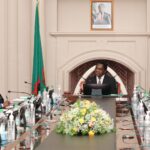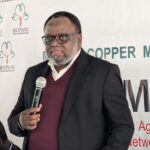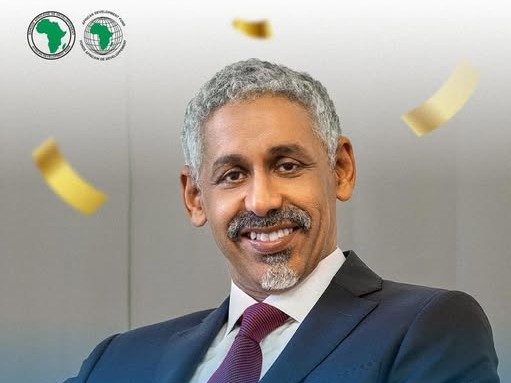Zambia’s quest to secure one of Africa’s most prestigious financial leadership roles has ended in disappointment, after its candidate Dr. Samuel Munzele Maimbo lost the race for the presidency of the African Development Bank (AfDB) to Mauritania’s former economy minister, Dr. Sidi Ould Tah. The decisive election took place today in Abidjan, Côte d’Ivoire, during the AfDB Annual Meetings.
Dr. Maimbo entered the contest among five distinguished candidates, and initially led the race in the first round of voting, securing 40.41 percent of the vote. Dr. Tah trailed behind with 33.21 percent, followed by Senegal’s Amadou Hott (17.62 percent), South Africa’s Bajabulile Swazi Tshabalala (8.24 percent), and Chad’s Mahamat Abbas Tolli, who managed only 0.52 percent.
However, fortunes shifted dramatically in subsequent rounds. After the second round, Dr. Tah overtook Dr. Maimbo with 48.41 percent to Maimbo’s 36.68 percent. Amadou Hott slipped to 9.02 percent, while Tshabalala exited the race after managing just 5.90 percent. Crucially, Dr. Tah garnered 68.42 percent of African votes, a significant margin over Maimbo’s 18.77 percent.
The third round confirmed Dr. Tah’s lead, with a resounding 76.18 percent of the vote, while Dr. Maimbo’s support dwindled to 20.26 percent. In accordance with AfDB election rules, the winner must obtain a majority of the total votes and a majority of African member votes — both of which Dr. Tah secured.
Dr. Tah now steps into the role formerly held by Nigeria’s Akinwumi Adesina, who served as AfDB President for a decade.
In a gracious concession, Dr. Maimbo extended his congratulations to the president-elect. “I wish to congratulate Dr. Sidi Ould Tah on his successful election as the President-elect of the African Development Bank Group,” he said. Reflecting on his campaign, Dr. Maimbo expressed his enduring commitment to Africa’s development and paid tribute to the many individuals and institutions that supported his candidacy. “The work for Africa’s development and prosperity continues,” he said. “I remain committed to our shared goal of building a thriving continent.”
While Zambia may find consolation in the election of Shebo Nalishebo as AfDB Executive Director representing Botswana, Malawi, Mauritius, and Zambia on the Bank’s Board of Directors, Dr. Maimbo’s loss highlights a growing list of unsuccessful bids by Zambian nationals for leadership roles in international institutions.
In recent months, former FAZ president Andrew Kamanga failed in his bid for a position at FIFA, despite endorsements from both COSAFA and CECAFA. Similarly, Mubita Nawa’s attempt to become Secretary General of INTERPOL fell short. Historically, the trend continues — Felix Mutati in 2013 was overlooked for the role of Secretary-General at UNCTAD in favour of Kenya’s Mukhisa Kituyi, and Inonge Mbikusita-Lewanika lost her bid for African Union Commission chair in 2008 to Gabon’s Jean Ping.
The latest outcome also revives concerns about regional alliances failing Zambia. Despite initial backing from Southern African countries in the first round, many switched their votes in later stages, echoing past frustrations where SADC endorsements did not translate into final-round support.
As Zambia reflects on yet another missed opportunity, the result raises difficult questions about the country’s influence within continental institutions, and whether deeper strategic recalibration is needed for future international campaigns.






